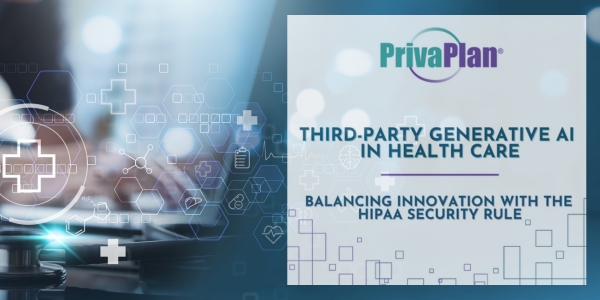
New Executive Order to Strengthen Cybersecurity Defenses
President Donald Trump signed a new executive order to update and consolidate U.S. cybersecurity policy in response to increasing global cyber threats.

President Donald Trump signed a new executive order to update and consolidate U.S. cybersecurity policy in response to increasing global cyber threats.

A new study shows hacking drives most health care data breaches. The recent Kettering Health ransomware attack proves the threat is far from over.

Learn how AI Ambient Scribes are transforming health care documentation. Learn what they are, their benefits, and how your clinic can prepare for a seamless and successful integration.

Regulators and consumers are responding to companies that don’t disclose the use of tracking pixels on their websites with lawsuits and costly fines.

Verizon’s newly released 2025 Data Breach Investigations Report (DBIR) reveals several unsettling trends in cybersecurity.

PrivaPlan has released a critical new resource to help health care organizations navigate the adoption of generative AI while staying fully HIPAA compliant.

Scammers are relentless as the IRS continues to see a surge of email and text scams designed to steal personal and financial information.

The OCR’s investigation determined that Health Fitness violated the HIPAA Security Rule’s Risk Analysis provision protecting ePHI.

Amazon will remove the “Do Not Send Voice Recordings” privacy feature for Echo speakers on March 28, raising security concerns for HIPAA-covered entities.

The FBI reports that recent letters to healthcare organizations threatening to leak patient data for ransom appear to be a hoax.
Don’t miss the latest updates, tips, and best practices in privacy and security compliance! Join our email newsletter for:
Sign up now and elevate your compliance game!